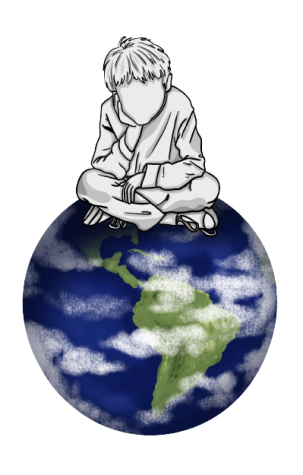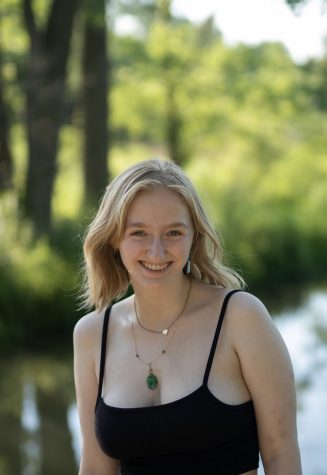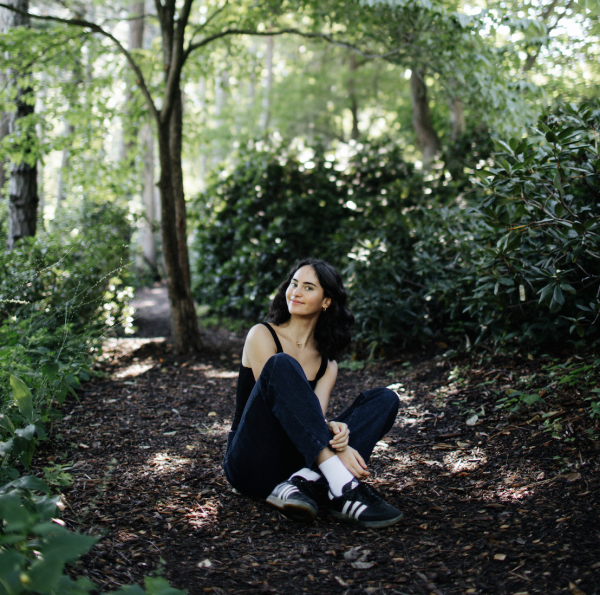To Have or Not To Have: The Ethics of Having Children Amidst the Climate Crisis
As we grow up and begin to plan the rest of our lives, teenagers must grapple with the world we have been left. Is it ethical to have children when it feels like climate change is taking over?
 Throughout our adolescence, teenagers are expected to have a clear picture of our future. Adults, both those we know and those who are strangers to us, ask us questions: what do you want to be when you grow up? Where are you going to college? When will you have children? We have so much ahead of us; or at least, we are supposed to. Instead, we live in impending doom, skewing our view of our future. This leads to a big question: is it ethical to bring children into this world, where we are constantly scared for our future?
Throughout our adolescence, teenagers are expected to have a clear picture of our future. Adults, both those we know and those who are strangers to us, ask us questions: what do you want to be when you grow up? Where are you going to college? When will you have children? We have so much ahead of us; or at least, we are supposed to. Instead, we live in impending doom, skewing our view of our future. This leads to a big question: is it ethical to bring children into this world, where we are constantly scared for our future?
We know that Earth’s climate has changed throughout its history; this kind of change, however, is unprecedented. Paleoclimatic evidence — evidence found in tree rings, ocean sediments, coral reefs and sedimentary rock — has shown that the climate is warming 10 times faster than what is considered normal.
These issues feel like they are on a larger scale than our everyday lives; how can we worry about the climate when we have homework to turn in or colleges to apply to? But the increased warming of the planet can be attributed to humans, as our activity has produced carbon dioxide approximately 250 times faster than natural sources. If we stay on the trajectory we are on right now, our world will look vastly different in 30 years. Coastlines will rise, causing coastal properties to be enveloped by the ocean. We will see a decline of crop yields by 10% and we will face higher temperatures and more adverse weather.
For teenagers right now, our entire future feels like a question mark. This is especially true when we consider building a family; for many of us, it is as difficult to fathom bringing children into a dying world as it is to imagine not having children at all.
Therefore, our generation is faced with a pressing question: is it ethical to have children? When choosing to have children, we consider many factors, including financial stability, adequate time and familial support. In addition, more than one in three Americans aged 18 to 29 believe climate change could be a top factor in deciding whether to have kids, according to a 2019 poll conducted by Business Insider. Adding climate change to the mix exacerbates the stress surrounding this decision, especially when finding the solution to this climate crisis rests on the shoulders of Gen Z.
This is the case for Eve Zikmund-Fisher, who graduated from CHS in 2016. It was the alarming words, “If we don’t fix this by 2050…” that made Zikmund-Fisher realize the extremities of the climate crisis and its alarming effects. Growing more alert, Zikmund-Fisher no longer saw it as a situation that was getting worse and required attention, but as an emergency, needing urgent action or else the consequences would be too difficult to bear.
Having been in a relationship for over a year and a half, Zikmund-Fisher and their partner have gone in circles: kids or no kids? Zikmund-Fisher’s partner feels uncomfortable bringing in children of their own into the world, given the state it is in. This leaves Zikmund-Fisher perplexed and frustrated. There is not one definitive answer, but rather a series of reflections and complicated conversations, one after another.
“Something I’m thinking about is if my parents had known how things were going to go and then decided to have me anyway, would I forgive them for that?” Zikmund-Fisher said. “Knowing how things are going to go in the next couple of decades, would my kids forgive me for bringing them into the world?”
Our generation has been robbed of the choices those before us made without a second thought. We cannot simply ignore the consequences of our decisions; they are constantly at the top of our minds. This plays into the stress of choosing to have children.
“I feel like the choice to have kids or not is no longer easy,” Zikmund-Fisher said. “It’s never been easy from a ‘raising kids’ standpoint, but from a global standpoint, it’s really not anymore. I feel like that choice has been taken away from me.”
Despite the growing anxiety of Gen Z and the impending doom as 2050 grows closer, we know that the carbon emissions of individuals are not the main cause of climate change. Fossil fuels account for 75 percent of carbon emissions, which is mostly due to big corporations; 100 companies have been responsible for 71% of carbon emissions since 1998. ExxonMobil, one of the world’s largest gas and oil companies, has known that fossil fuels contribute to climate change since 1956, when scientists employed by the company published a study proving it. But in 1996, at a speech to the Economic Club of Detroit, the CEO of ExxonMobil outright denied that human activity contributed to climate change, saying “Currently, the scientific evidence is inconclusive as to whether human activities are having a significant effect on the global climate.”
Therefore, it is important for us to realize that not having children is not going to stop the climate crisis, nor will it prevent it in any way. Our main problem is not overpopulation or the choices of individual people. The root of climate change lies in corporations putting profits over humanity and not considering how their carbon emissions affect the population as a whole, and the planet itself. We must not let ourselves be distracted by the unfair blame put on us. So what can we do, to prevent the loss of the world as we know it while not sacrificing the potential families we will build?
Elizabeth Anderson, a Max Shaye professor of philosophy at University of Michigan, presents a new way to look at the ethics of having children, when the future of our world feels uncertain. She asks us to think about this question: what makes a good life?
“One can consider what contributions one’s child will be able to make to help society meet the challenges [of climate change], and that itself will be very meaningful,” Anderson said. “So [to answer] whether someone has a good life [means] to look at both sides of the equation: both what they experience from the environment but also what meaning they can get from contributing to improve the lives of the people around them.”
Choosing to have children should be personal; something that affects you and your family. But right now, the government expects the younger generations to shoulder the burden of what Gen X, baby boomers and those before them have caused — they have given up on climate change legislation, including adequately cutting carbon emissions. We have been passed a catastrophe that could have been prevented decades ago, and could be lessened now if politicians and world leaders made it a priority. Instead, they are handing it over to us to deal with and making us feel guilty about individual choices, like our commute to school and whether to have children.
We believe that the issue is not whether or not to have children; instead, it is about how to raise these children thoughtfully and mindfully, especially given the world we live in today. We must center climate change education in order to prevent another generation that enables climate change “deniers.” We must continue to fight for our futures while living in the current moment, as well.
“I think what one should really do is talk about climate change [in order] to raise one’s children with that concern top of mind, and work together to think about what we can do to help society deal with this problem,” Anderson said.
Our generation should not be expected to give up our future because of the mistakes of those who came before us. Instead, we should continue to protest the way our planet is treated and to call out the reason why climate change occurred in the first place: certain people and places being treated as disposable. We will not ignore this problem. We will face it head-on, while also living our own lives, with children or not, and our children will continue this fight as well.
“The chief ingredients of happiness don’t consist of having a tranquil and cooperative world, but rather in finding a meaningful place [in the world] and helping people to manage these challenges,” Anderson said. “[It is important to raise] one’s child with a view to how they can find a meaningful way to help everyone cope with the problems they face and to prevent worse things from happening.”










